Mental Health Europe explained
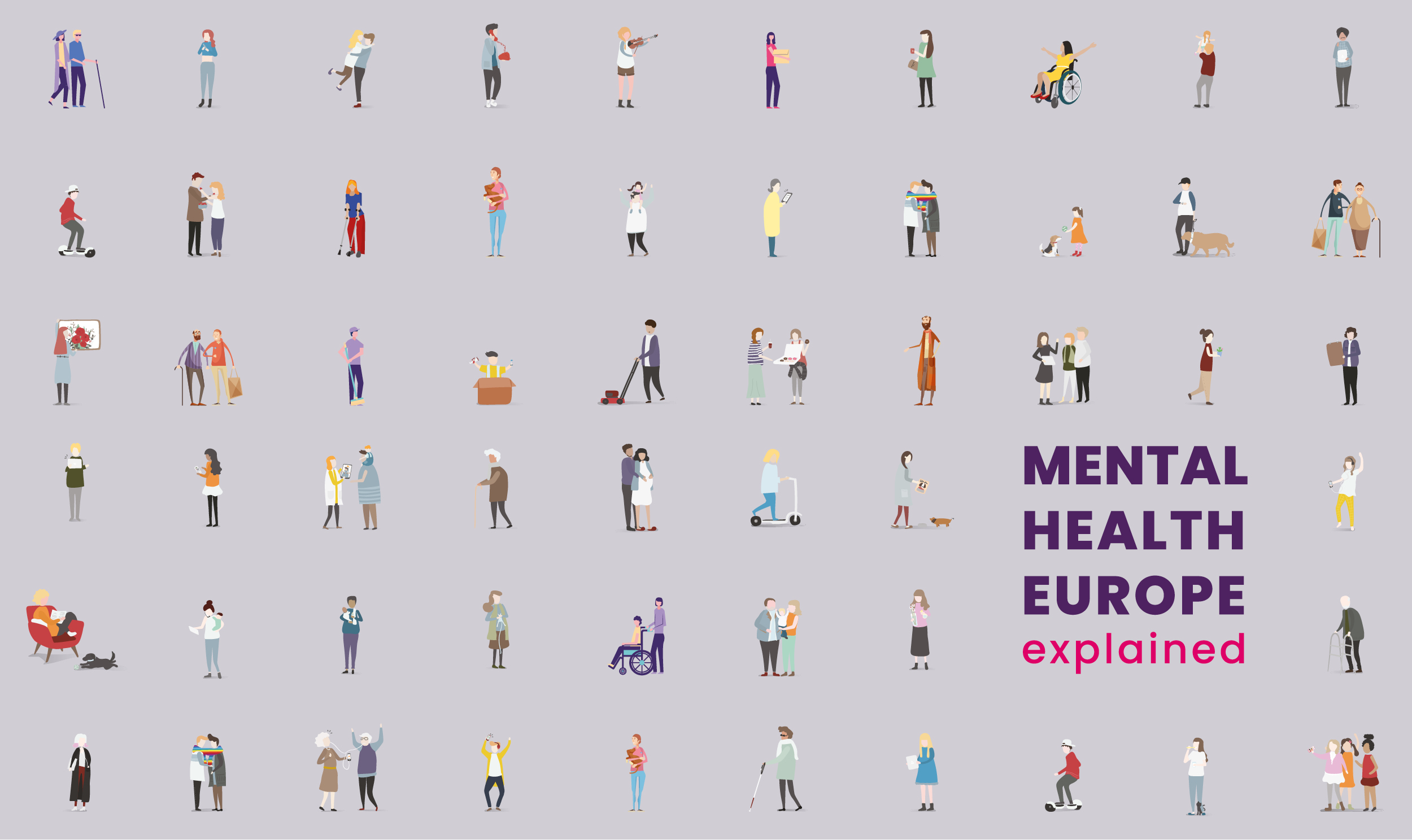
We hope that this explainer will help you better understand the essence of MHE’s work and shed the light on some common terminology misconceptions when it comes to mental health.
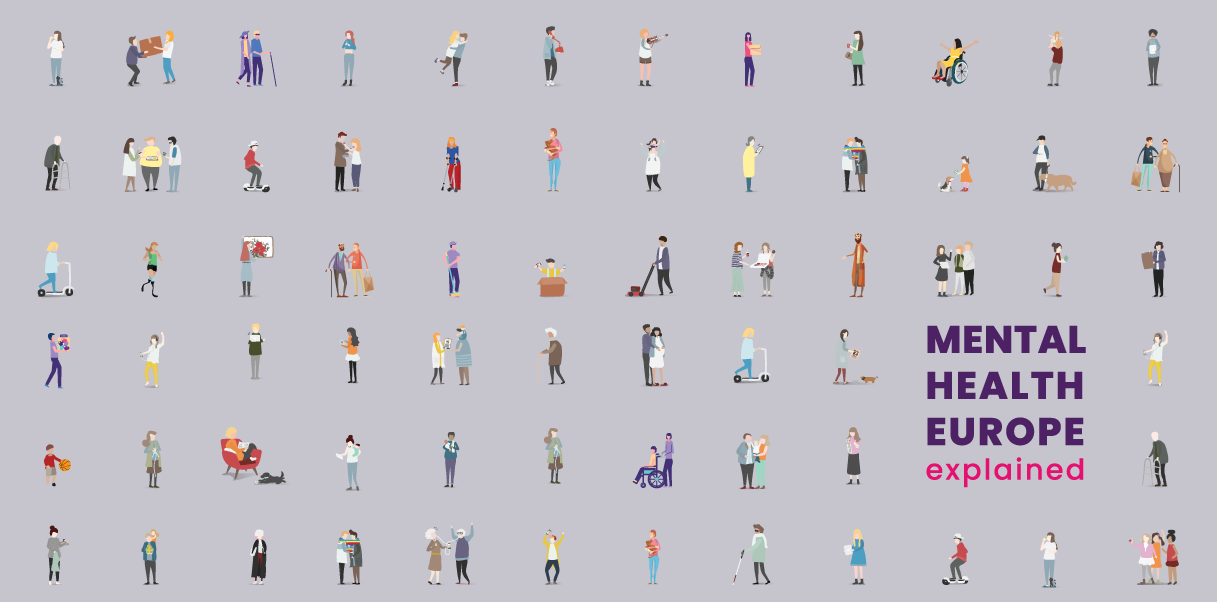

What is mental health? What is mental ill health?
The World Health Organisation (WHO) defines mental health as “a state of well-being in which every individual realizes his or her own potential, can cope with the normal stresses of life, can work productively and fruitfully, and is able to make a contribution to her or his community.” Mental health is an integral part of everyone’s general health, and is as valuable and important as physical health.
Mental ill health or mental health problems are the opposite of mental health. It is a state where a combination of factors, such as a person’s life, social, economic and cultural environment, negatively influence their well-being.
Mental health problems can prevent a person to reach the highest possible level of wellbeing if paired with societal barriers.
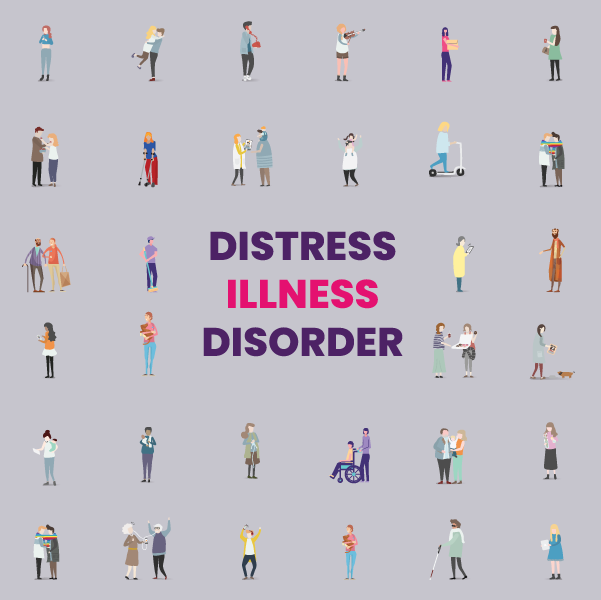
Mental health problem, mental distress, mental illness, mental disorder: is there a difference?
Yes, each term has a different meaning and connotation.
Mental distress describes a variety of experiences that negatively influence our well-being. Mental distress can be caused by specific events or circumstances happening in our lives, as well as socio-economic factors that might negatively impact our well-being. Mental distress can lead to the development of one or more mental health problems.
Mental illness or disorder describes a mental health problem in a narrower and more stigmatising way. The term ‘illness’ or ‘disorder’ focuses on medical symptoms. It hinders the understanding of mental distress as a wide spectrum of experiences and feelings. These terms do not take into account the external barriers that might cause distress. They imply that the variety of experiences of a person can be reduced to a disease or illness that should be cured medically.

Words matter: Mental Health Europe’s approach to the use of language on mental health
MHE promotes an understanding of mental health and mental ill health as a human experience. We favour the use of terms ‘mental distress’, ‘mental ill-health’ and ‘mental health problems’.
The use of medical language tends to minimise these human experiences, categorising and labelling them. For example, people often assume that a psychiatric diagnosis means that someone’s difficulties are caused by an underlying brain problem. However, there is no direct evidence to support this idea. For many people, the distress that leads them to seek professional mental health help has roots in social disadvantage: poverty, poor housing, insecure and low-paid jobs, missing out on formal qualifications, living in stressful environments or having to move home frequently. Even problems that may be difficult for others to understand, such as hearing voices, and those that have traditionally been seen as ‘symptoms of severe mental illness’ are often related to stressful events and life circumstances, particularly abuse or other forms of trauma. The experiences that we think of as ‘mental health problems’ are very real and can be very distressing, but not everyone finds it helpful to think of them as illnesses.
Using medical terms – such as ‘mental illness’ or ‘brain disorder’ – can get in the way of understanding how someone’s mental problems might have developed in the first place. There are obviously reasons why the problems themselves have developed, but medical categories and labels tell us nothing about what might have caused these problems.
We encourage everyone to refrain from using terms that can reinforce negative stereotypes and be stigmatising.
For more information, see MHE infographic on the use of language and words. >>>

Why are words important when we talk about mental health and mental ill health?
When it comes to mental health and mental ill health, the words we use matter more than we think. The way we talk about mental health and people experiencing mental distress can reinforce negative stereotypes and be stigmatising, without us even realising it. Language is a powerful tool for creating awareness and fighting stigma, so here are a few tips on how to be mindful of the words we use and how to avoid causing offence when we don’t mean to. We have tried to pick terms that are non-stigmatising, but we understand that each person is unique, and some people may not identify with the language chosen here.
For more information on how use words, see MHE infographic on the use of language and words >>>
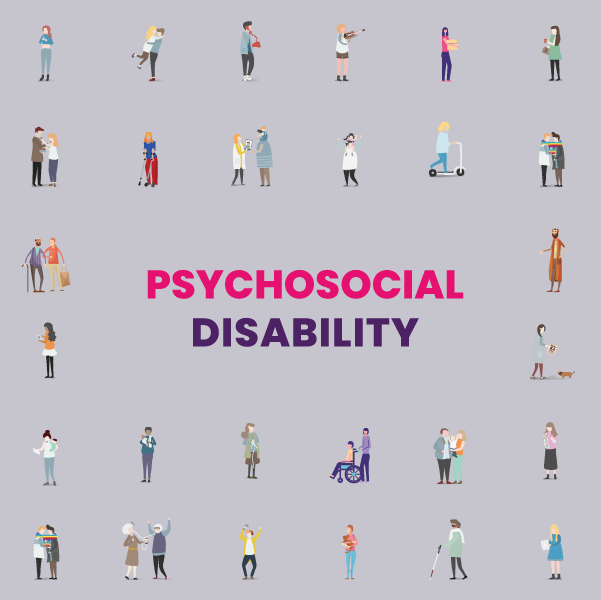
What is a psychosocial disability?
Psychosocial disability is an internationally recognised term, in particular by the United Nations, to describe the experience of people who have mental impairments which, in interaction with various societal barriers, may hinder the full realisation of their rights.
MHE uses this term in policy work when referring to persons who fit the definition and are therefore protected by the United Nations Convention on the Rights of Persons with Disabilities.

What is the psychosocial model of disability?
The understanding of psychosocial disability and mental health comes from two different frameworks: the biomedical and the psychosocial models.
The biomedical model frames psychosocial disability as an illness mainly caused by biomedical factors and genetic predisposition.
The psychosocial model frames psychosocial disability as a human experience. Distress is caused by a variety of factors including wider socio-economic issues, challenging or traumatic life events and personality. With this model, a psychosocial disability is a mental health problem which when combined with barriers in society becomes disabling.
The shift from a biomedical model to a psychosocial model is enshrined in the United Nations Convention on the Rights of Persons with Disabilities (UN CRPD). MHE subscribes to the psychosocial approach to disability and works toward the full implementation of the UN CRPD.
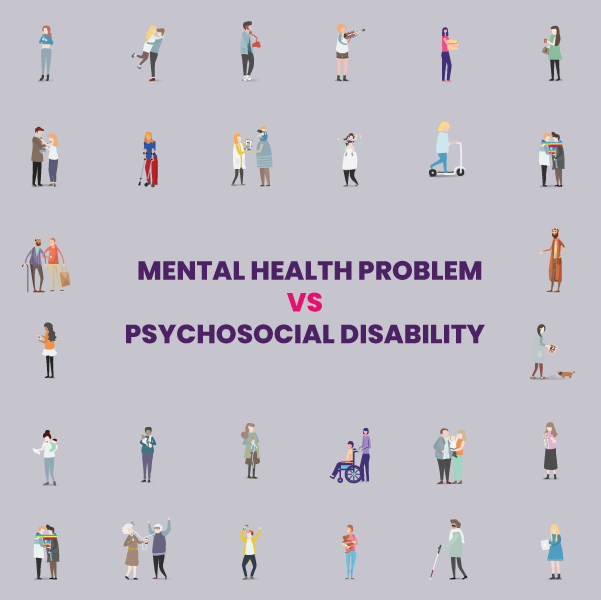
What is the difference between mental health problems and psychosocial disabilities?
People with psychosocial disabilities are people with mental impairments or mental health problems.
When these impairments meet barriers in society, they create obstacles for people with psychosocial disabilities to be fully included in society and enjoy their rights. In policy and human rights-related work, the term ‘people with psychosocial disabilities’ is then used.
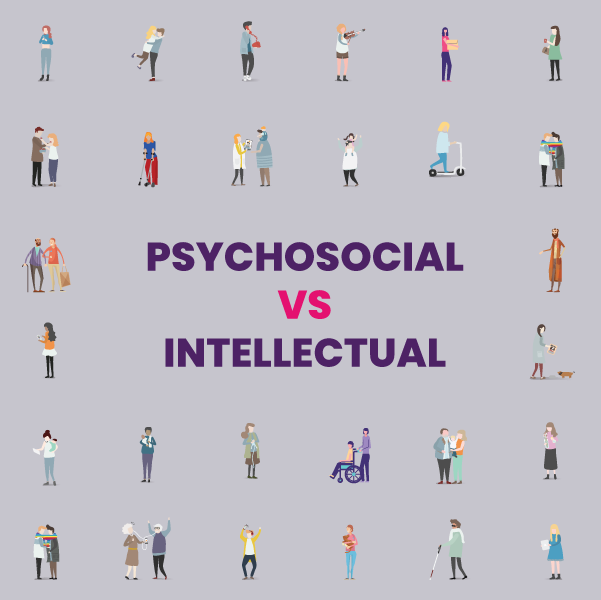
What is the difference between psychosocial disabilities and intellectual disabilities?
Psychosocial disabilities refer to mental impairments, while intellectual disabilities denote an intellectual impairment or learning difficulty.
Intellectual disability is an internationally recognised term to describe the experience of people who have intellectual impairments which, in interaction with various societal barriers, may hinder the full realisation of their rights. Where psychosocial disabilities refer to mental or psychosocial impairments, intellectual disabilities denote an intellectual impairment or learning difficulty.
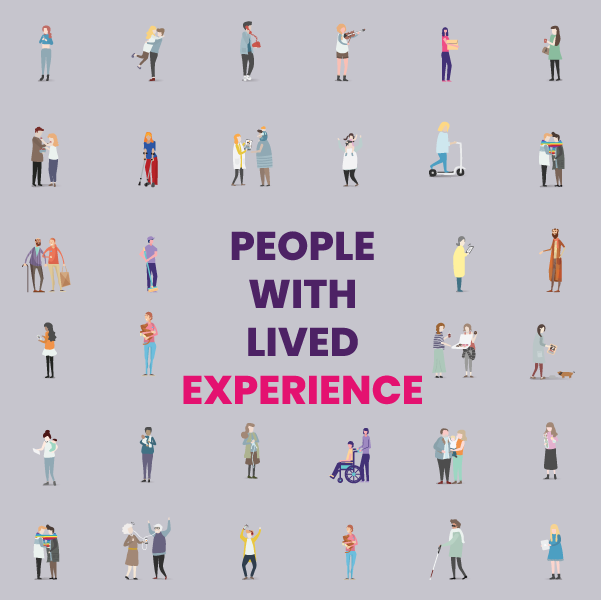
Who are the people with lived experience of mental ill-health?
People who experience or have experienced mental distress.
The term is broader and more descriptive than ‘mental health problems’. Its underlying assumption is that mental distress is a meaningful human experience, and that it is for the individual to make sense of their own experiences within the context of their personal story.
It positions the person as having expertise in their own experience (hence the equivalent term ‘expert by experience’). It can be used on its own, or in conjunction with specific experiences, for example, ‘lived experience of hearing voices’ or ‘lived experience of unusual beliefs.’

At MHE, we work with people with mental health problems, people with lived experience and (ex) service users. Is there a difference?
For an explanation of people with mental health problems and people with lived experience, see the dedicated sections.
Service users or ex-users refer to people who use or used mental health services.
Although there are some differences in the scope and connotation as indicated by the various definitions, at MHE these terms are often used interchangeably as they refer to the same person or group of people.
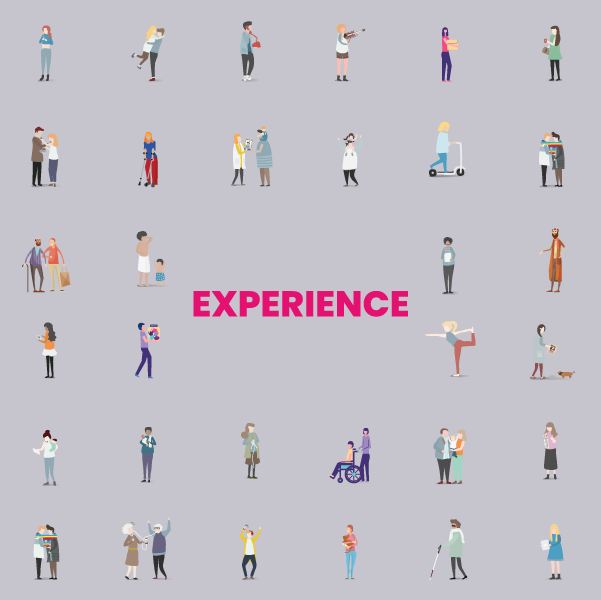
Who are experts by / through experience?
This term is often seen as an equivalent of ‘person with lived experience’.
It refers to a person who has or had experience of mental health problems and has gained expertise in their own experience.
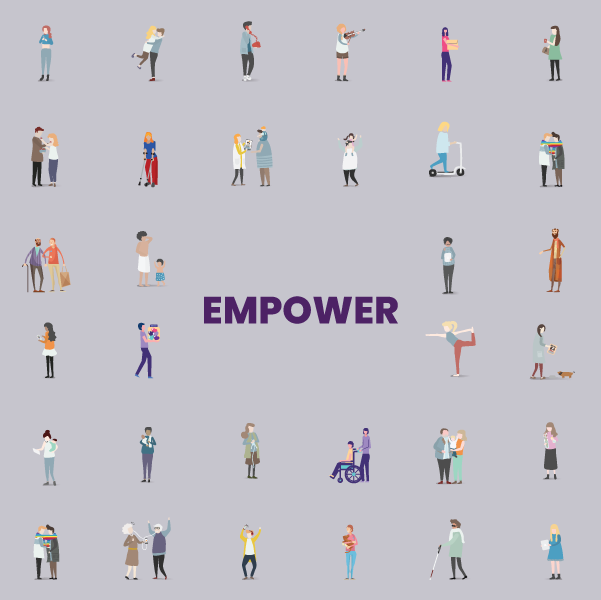
What does it mean to empower people with psychosocial disabilities?
Empowerment can have a different meaning for different people. In general, we understand empowerment as the power and ability of an individual to have choice and control over his or her life. It also implies the possibility to make informed decisions, enjoy rights and have responsibilities.
Persons with psychosocial disabilities are often deprived of their basic rights, such as their right to legal capacity, and have no to little control and choice over their lives.
Empowering persons with psychosocial disabilities means implementing measures in legislation, policy and practice so that they can fully enjoy their autonomy and self-determination.
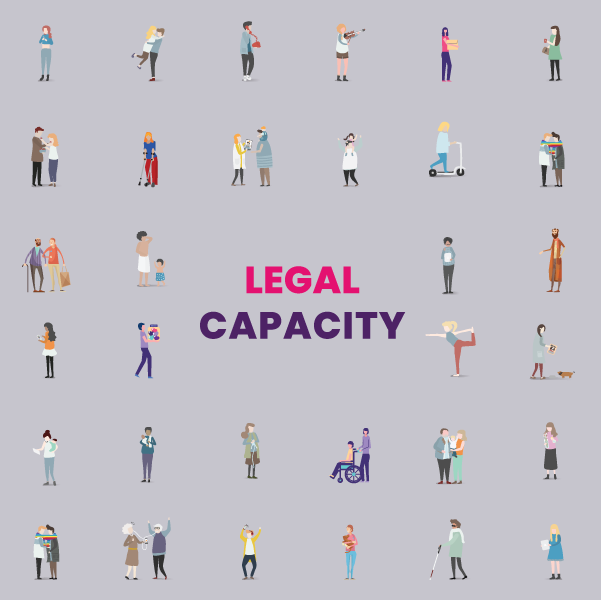
What is legal capacity?
Legal capacity is the right to make choices autonomously and be recognised before the law.
It is different from mental capacity, which is an individual’s ability to make decisions and can vary from person to person.
Legal capacity is an inherent right that every individual has. It is protected by Article 12 of the UN CRPD.
For more information on legal capacity, see MHE’s video on Article 12 of the UN CRPD >>>
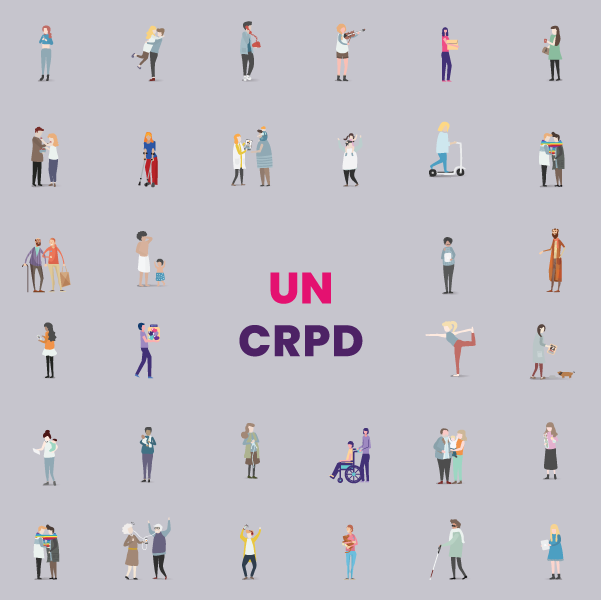
What is the United Nation Convention on the Rights of Persons with Disabilities?
The United Nations Convention on the Rights of Persons with Disabilities, or UN CRPD for short, is a United Nation human rights treaty.
It is a binding document, adopted in 2006 and opened for signature in 2007. It is the first comprehensive human rights treaty of the 21st century and is the first human rights convention to be opened for signature to regional integration organisations such as the European Union (in 2010). It was signed and ratified by the European Union (EU) and all its Member States.
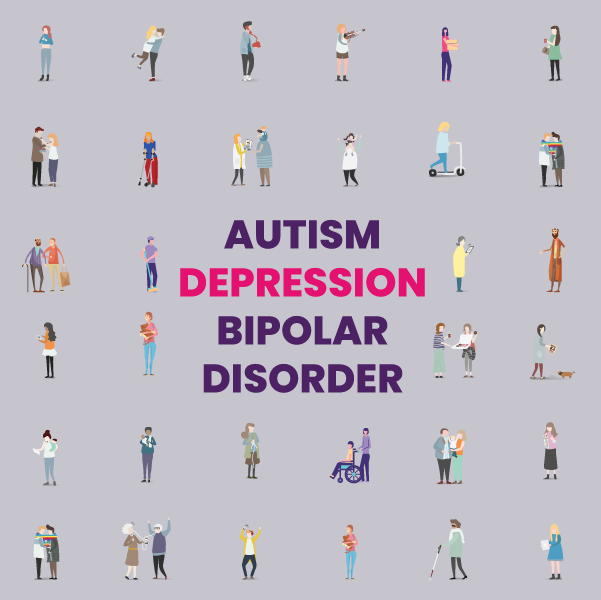
I have been diagnosed with autism / depression / bipolar disorder – does this mean I have a psychosocial disability
Depression and bipolar are diagnoses given to people experiencing mental distress. When these experiences or impairments meet barriers in society, they become disabling and we speak of psychosocial disabilities.
While autism is a developmental disability, people with autism (or autistic people) often experience mental health issues as a co-occurring condition, for a variety of reasons, including lack of understanding and accessibility. They can thus also have a psychosocial disability.
If you have been given a psychiatric diagnosis, we invite you to read our short guide on the topic, available in various languages (English, German, French, Italian). This guide was prepared to support people who are given a diagnosis navigating and understanding the mental health field.
If you are asking this question to know whether you are eligible for disability benefits, the answer lies in the definition of disability and ensuing legislative measures of your country. We suggest you reach out to the MHE member(s) in your country.
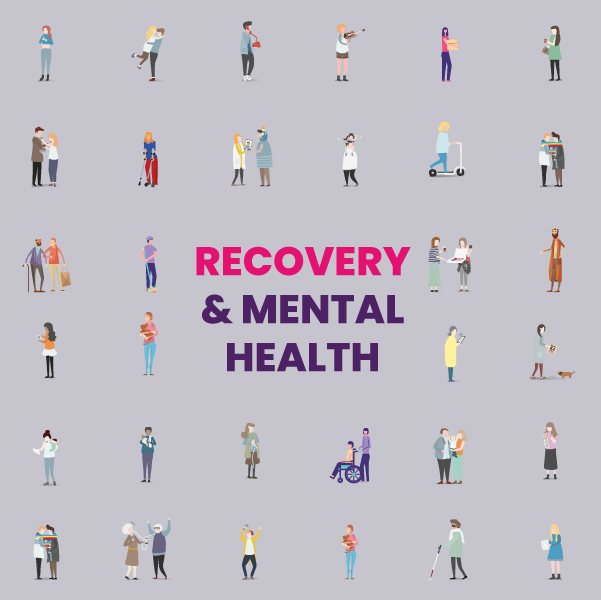
What does recovery from mental health problems mean?
Recovery is self-defined but broadly means living a meaningful and satisfying life, with hope for the future.
Recovery is not necessarily the eradication of the experiences or symptoms accompanying mental distress, as it would be used in the context of physical health. It can mean living with and managing these experiences, whilst having control over and input into your own life.
For more information on the topic, MHE prepared a short guide on the topic >>>
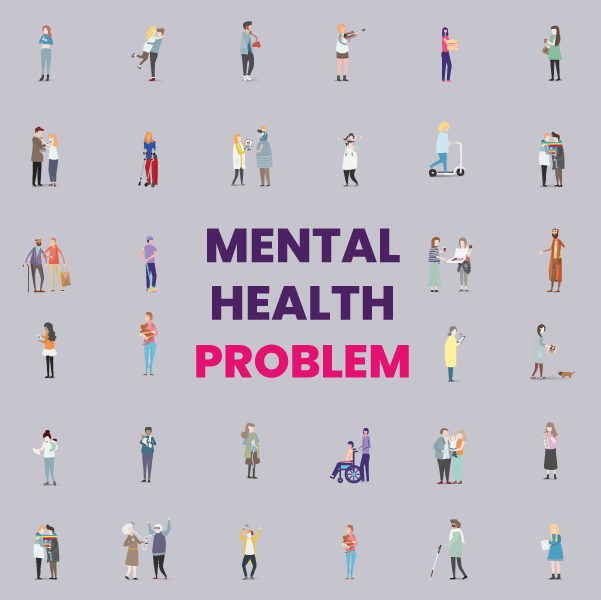
I have a mental health problem – will I experience this forever?
Experiencing mental distress might change over time.
In some cases, mental health problems can take the form of more long-term mental impairments, while in others they might be the temporary experience of mental distress. There is not a clear-cut answer to this question since each individual is different and experiences mental health and mental ill health differently. Recovery from mental health problems is a personal process and its endpoint is self-defined.
For more information on the topic, we suggest our short guide to psychiatric diagnosis and our short guide to personal recovery >>>
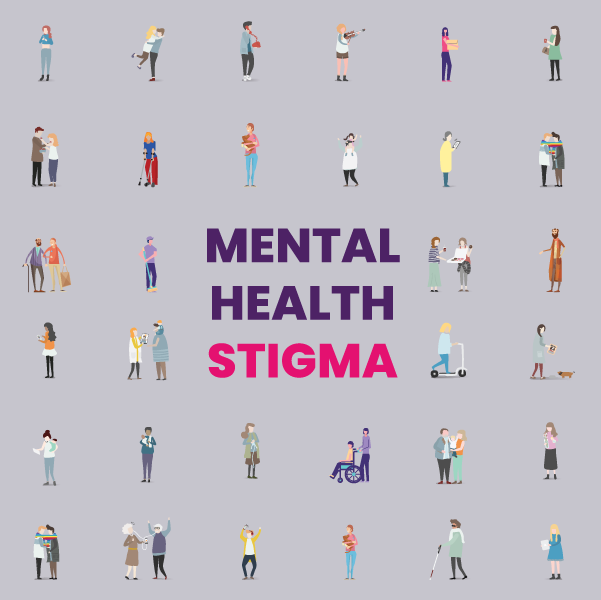
What is mental health stigma and discrimination?
Negative stereotypes about mental ill health lead to stigma about mental health and discrimination about mental health problems.
Stigma is a negative connotation of a particular circumstance or quality. People experience stigma when they are viewed in a negative way because of a characteristic or trait. Mental health stigma is when someone is viewed in a negative way because they experience mental ill health. This can be by others (social stigma) or by same individual (self-stigma). Discrimination is when people are treated differently because of a mental health problem.
For more information, see MHE’s anti-stigma and discrimination campaign, Each of Us >>>
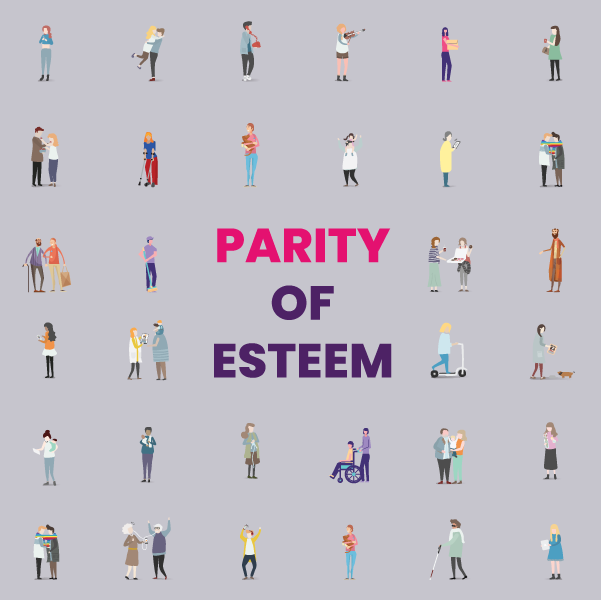
Parity of esteem is one of the key principles of MHE’s work. What does it mean?
Stigma and discrimination remain prevalent in society when it comes to mental health. The consequences lead people to think that mental health is not as important as physical health. This has an impact on the quality and accessibility of mental health care, as well as the allocation of funds to mental health services.
MHE works towards reversing this trend and misconception and to encourage valuing mental health equally with physical health, called parity of esteem.
About Mental Health Europe
Mental Health Europe is a European non-governmental network organisation working for the promotion of positive mental health, the prevention of mental distress, and the improvement of care and community-based recovery. We continuously champion social inclusion and the protection of the rights of (ex)users of mental health services, persons with psychosocial disabilities, their families and carers. We raise awareness to end mental health stigma throughout Europe. The United Nations Convention on the Rights of Persons with Disabilities is the foundation of our work.
Stay connected
Get our latest news, personal stories, research articles, and job opportunities.